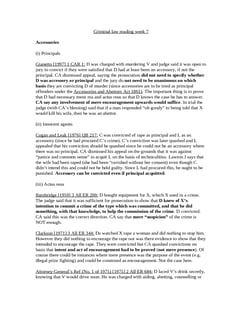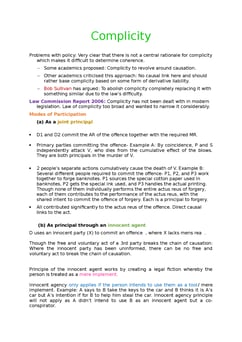Judgement for the case R v Mowatt
Table Of Contents
Two people robbed a man and when he demanded to know from Defendant where Defendant’s accomplice (who had taken his money) had gone, Defendant knocked the man over and punched him a few times.
He was charged with robbery and wounding under s.20. He was convicted, though the judge gave no direction on the word maliciously.
His appeal was dismissed since, the CA said, no direction was necessary where malice was obvious, meaning where any ordinary person could see that some harm might result.
Diplock
Says that “clearly any ordinary man would realise that some physical harm would be sustained by the victim” and hence there must be some intent.
RELATED CASES
For Further Study on R v Mowatt

Criminal Law notes fully updated for recent exams at Oxford and Cambrid...
Need instant answers? Our AI exam tutor is here to help.
Ask questions 🙋 Get answers 📔 It's simple 👁️👄👁️
Our AI is educated by the highest scoring students across all subjects and schools. Join hundreds of your peers today.
Get StartedSimilar Cases
Related Product Samples
These product samples contain the same concepts we cover in this case.
| Criminal Law | Defences Notes (32 pages) |
| Criminal Law | Homicide Notes (20 pages) |
| Criminal law | Offences Against The Person Notes Real Notes (28 pages) |

 Since 2010, Oxbridge Notes has been a trusted education marketplace, supplying high-quality materials from top achievers at universities like Oxford, Cambridge, LSE, Harvard, and Yale.
Since 2010, Oxbridge Notes has been a trusted education marketplace, supplying high-quality materials from top achievers at universities like Oxford, Cambridge, LSE, Harvard, and Yale.